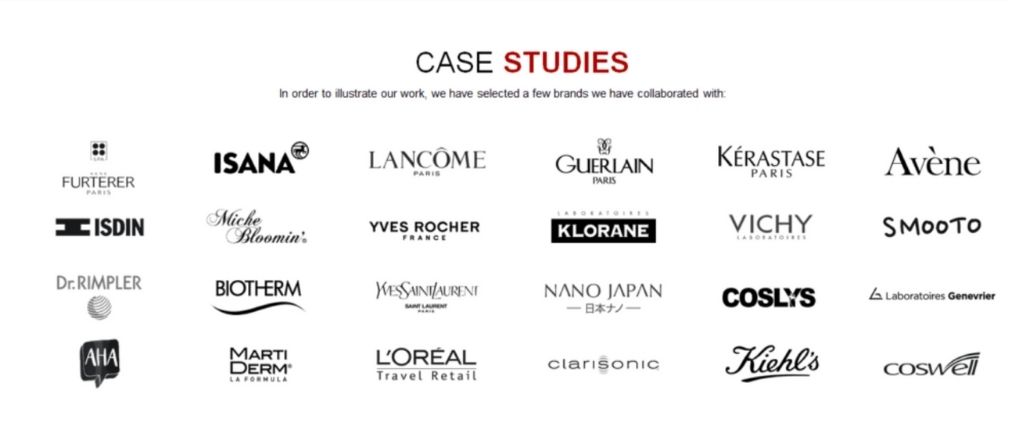Sephora: a name synonymous with beauty and luxury. As a French multinational retailer of personal care and beauty products, Sephora has made an indelible mark on the global stage. Founded in 1970 by Dominique Mandonnaud, it began its journey as a humble perfume shop in France.
Today, Sephora boasts nearly 340 brands under its umbrella, including its own private label, Sephora Collection. This impressive portfolio is further strengthened by being owned by LVMH Moët Hennessy Louis Vuitton – a legendary player in the luxury goods market.
With such strong backing and a reputation for excellence, it comes as no surprise that Sephora turned its eyes toward conquering new markets – specifically China – where demand for high-quality beauty products is soaring.
As one of the largest economies in the world, China offers incredible growth opportunities, particularly in its rapidly expanding cosmetics industry. In this blog post, we explore Sephora’s journey in China so far and examine its marketing strategies and product adaptations to appeal to Chinese consumers.
Key Takeaways
- Sephora is aggressively expanding its presence in China, with over 200 physical stores and a partnership with JD.com to establish itself as a leader in the Chinese beauty market.
- To appeal to Chinese consumers, Sephora has adapted its product offerings and marketing strategies by collaborating with local brands, utilizing popular social media platforms like WeChat and Douyin for promotions, and implementing personalized digital marketing tactics.
- Despite facing challenges such as intense competition from local and international brands and navigating complex regulations for cosmetic products, Sephora remains committed to providing high-quality beauty products while ensuring full compliance with local rules and regulations.
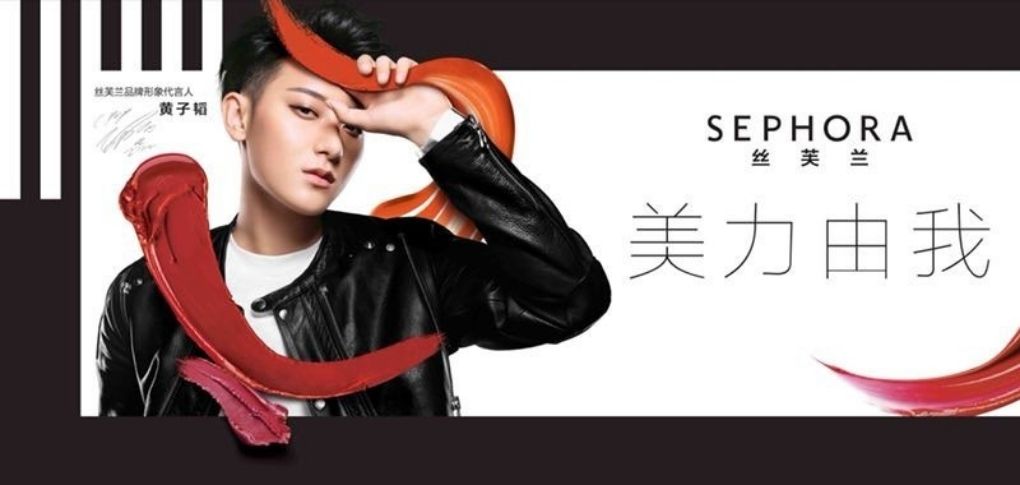
Sephora’s Expansion In China
Opening Of New Stores
Sephora has been aggressively opening new stores in China as part of its expansion strategy. One exceptional example is Shanghai’s Store of the Future, which opened in 2023. This innovative store concept offers customers an immersive shopping experience through cutting-edge technology and personalized services.
By consistently launching new stores with unique offerings, Sephora successfully generates buzz and excitement around each opening event. It also allows us to reach more people across different geographic areas and tap into emerging markets while staying mindful of evolving global retail trends.
Partnership With Chinese E-commerce Giant JD.com
In 2015, Sephora made a game-changing move by partnering with JD.com, China’s second-largest e-commerce website. This strategic collaboration has not only allowed Sephora to tap into the vast online consumer base in China but also solidified its position as an industry leader in the beauty sector.
To further enhance customer experience and cater to modern Chinese consumers’ need for convenience and immediacy, Sephora launched a “one-hour” beauty shopping service in collaboration with JD in 2021. This innovative offering allows customers to purchase their favorite products with just a few clicks and receive them within an hour—blurring the lines between online and offline retail even further.
The increase in store openings from 18 per year to 38 last year indicates that there is a growing demand for Sephora’s offerings among Chinese consumers.
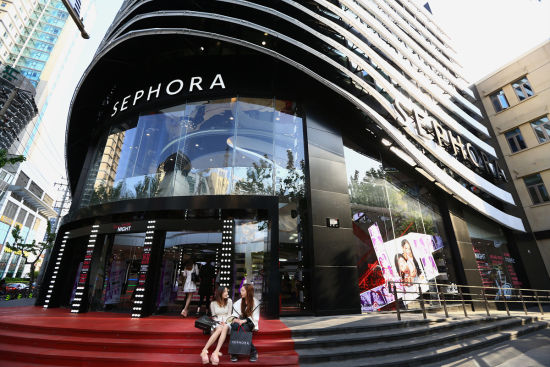

Challenges Faced By Sephora In China
Chinese Consumer Behavior
With a population of over 1.4 billion people and diverse cultural backgrounds, Chinese consumers have unique preferences when it comes to beauty products.
Sephora has analyzed the consumption behavior of over 25 million members and identified six major consumption trends in China’s prestige beauty market:
- anti-aging
- clean beauty
- skincare routines
- personalized makeup looks
- male grooming
- healthy living.
Competition From Local And International Brands
One of the biggest challenges Sephora faces in China is competition from both local and international brands in the cosmetics industry. Domestic companies like Watsons are also vying for a larger share of the market, making it difficult for multi-brand players like Sephora to stand out.
To stay competitive, we need to be aware of our competitors’ sales strategies and marketing tactics. For example, some Chinese beauty consumers prefer traditional remedies over Western-style formulas, which means multi-brand players may need to adapt their product offerings or collaborate with local Chinese brands to appeal to different consumer preferences.
Chinese Regulations For Cosmetic Products
As Sephora expands its presence in China, we face a complex and constantly evolving regulatory environment for cosmetic products. Compliance with regulations is critical to ensure that your product offerings meet the safety and quality standards required by Chinese authorities.
This includes navigating requirements on labeling, packaging, and ingredients. For example, recent changes to Chinese cosmetics regulations have led Sephora to reformulate some of its skincare products.
Your team must remain vigilant about staying up-to-date on the latest regulatory changes while also working closely with our suppliers to ensure their compliance with relevant laws and regulations.

Marketing Strategies In China
Collaboration With Local Chinese Brands
As part of its marketing strategy in China, Sephora has been collaborating with local Chinese beauty brands to remain competitive and appeal to Chinese consumers. This approach has helped them to establish a stronger foothold in the market and showcase their commitment to understanding and meeting the needs of local consumers.
Partnering with local brands is an effective way to tap into new audiences and capitalize on emerging trends in this dynamic industry. Sephora regularly introduces new local brands such as Chaling, Wei, Herborist TaiChi, and Inoherb at its stores in China.
Their collaborations are not just limited to product offerings but extend to joint campaigns, promotions, and events that enable them to create unique experiences for their customers.
Promoting On Chinese Social Media Platforms
Chinese social media platforms like WeChat, Weibo, and Douyin (TikTok’s Chinese counterpart) are essential for promoting a brand in China.
With over 1 billion active users on WeChat alone, these platforms offer an extensive reach into the Chinese consumer market. For instance, Sephora has adopted a comprehensive digital strategy and is actively using these social media channels to promote its brand in China.
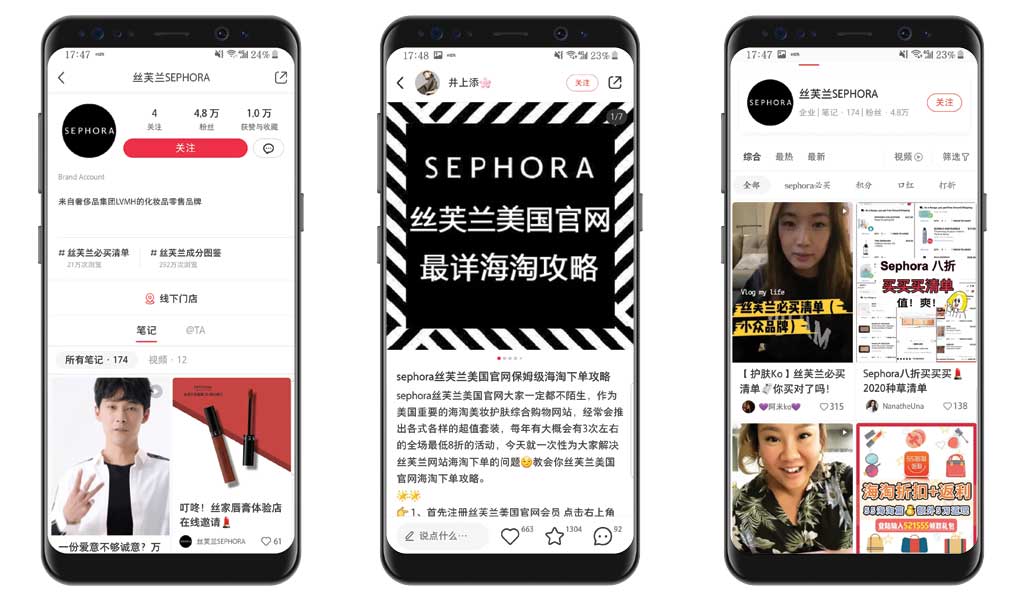
Sephora is offering personalized and digital marketing efforts such as virtual makeup trials and skincare consultations on its website. It also uses local adaptation by highlighting specific skincare or makeup trends in China that they’re capitalizing on through customized product offerings.
Use Of Key Opinion Leaders (KOLs) And Influencers
These are influential individuals who have built up a following on social media platforms such as WeChat and Weibo, and Sephora is among the brands tapping into their reach.
By partnering with KOLs, they are able to leverage their large audience base to promote their brand in an authentic way that resonates with Chinese consumers. This strategy can also provide invaluable feedback from customers and insights into local cultural preferences.
Collaborating with KOLs can help international brands navigate China’s complex digital marketing landscape while engaging effectively with target audiences.
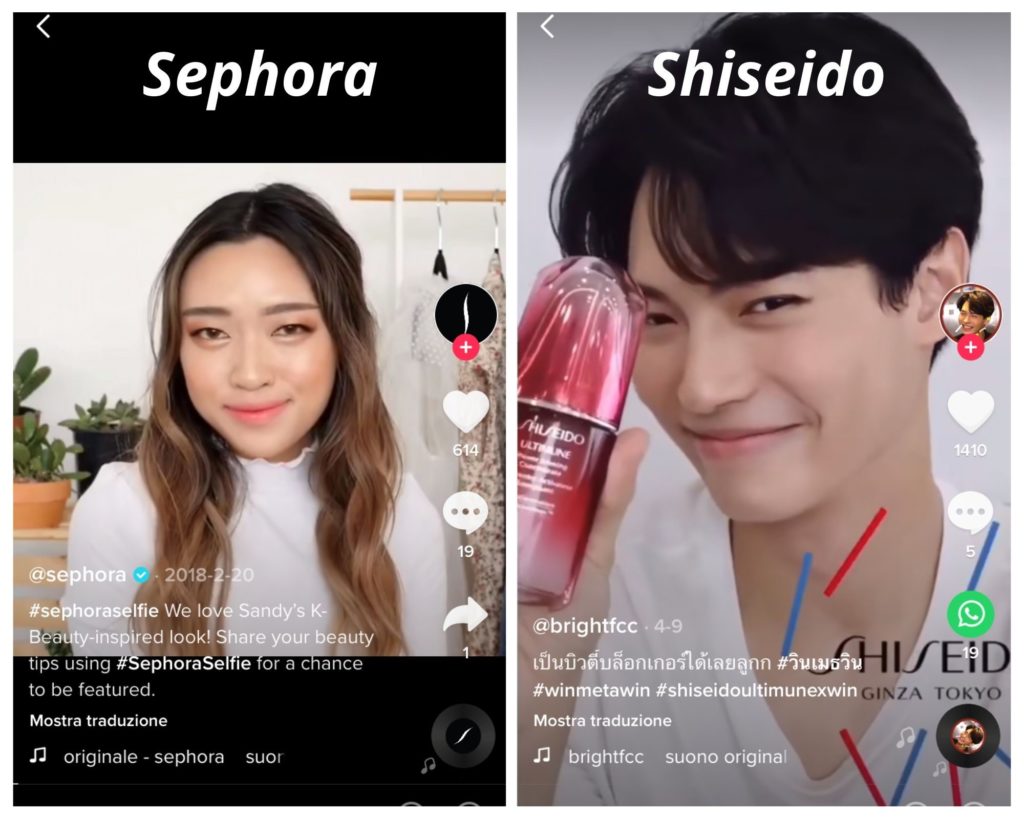
One way Sephora personalizes its approach is by collaborating with local Chinese brands to create exclusive products tailored to Chinese preferences. This allows them to stand out from competitors while also providing customers with unique options they cannot find elsewhere. Additionally, they promote on popular Chinese social media platforms.
By leveraging these influential voices (beauty advisors) that resonate with young consumers in China, we can reach a wider audience effectively.
Product Strategy And Local Adaptation
Sephora has adapted its product offerings to meet local preferences. The company has included a wide selection of Chinese brands in its makeup, skincare, perfume, and other beauty offerings.
By doing so, this big beauty chain is able to provide a more diverse selection of products that resonate with local customers and align with their cultural values.
For example, Sephora introduced traditional ingredients known by Chinese people for centuries into their cosmetic lines – such as pearl powder or ginseng root extract – which helped them gain traction in the market.
One skincare trend that Sephora is capitalizing on in China is the appetite for sustainable and clean beauty products. Chinese consumers are increasingly concerned about the environment, and this has led to a growing demand for brands with an eco-friendly focus.
Sephora has responded by introducing brands like Biossance which cater to these evolving preferences. In addition, makeup beauty trends such as bold lip colors and shimmering eye shadows continue to be popular in China, and Sephora’s exclusive collection of cosmetics from Korean brand 3CE has been a hit with customers seeking these looks.
Future Plans For Sephora In China
As of now, there is no specific geographical area mentioned regarding Sephora’s plans for further expansion in China. However, high-end beauty retail has been known to adapt its product offerings and marketing tactics based on customer segmentation and preferences.
Sephora has already launched its first Store of the Future in China, which sets a new benchmark in prestige beauty retail within the country. Additionally, Sephora continues to curate preferred brands from around the world that meet Chinese consumers’ ever-changing beauty needs and interests.
Winning in China: Your Path to Sephora-like Success Starts Here
At our agency, we understand the challenges and opportunities that come with expanding into the Chinese market, just like Sephora. We have a deep understanding of Chinese consumer behavior, competition, cosmetic regulations, and effective marketing strategies. Our expertise can help your brand navigate these complexities and achieve success similar to Sephora.

We offer comprehensive support and guidance to ensure that your brand’s product offerings and marketing tactics are tailored to resonate with Chinese consumers. Whether it’s leveraging local influencers, collaborating with Chinese brands, or creating personalized marketing campaigns, we have the knowledge and experience to help you thrive.
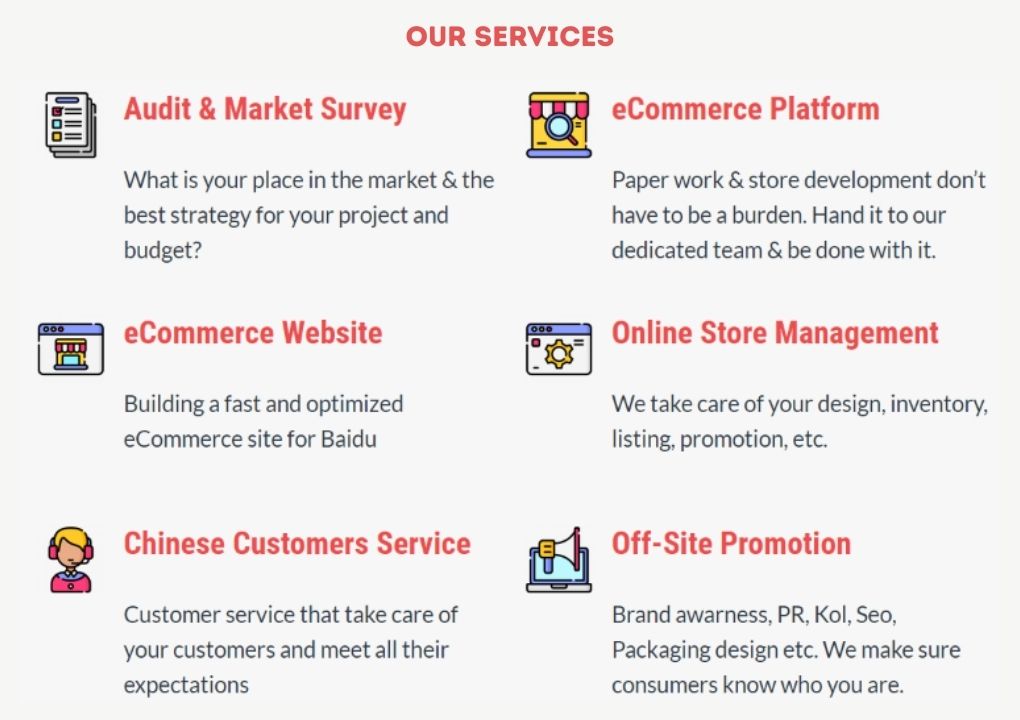
Don’t miss out on the opportunity to tap into the thriving Chinese beauty market. Contact us today, and let us assist you in achieving the level of success enjoyed by Sephora. Together, we can create a winning strategy that sets your brand apart and drives growth in China.
